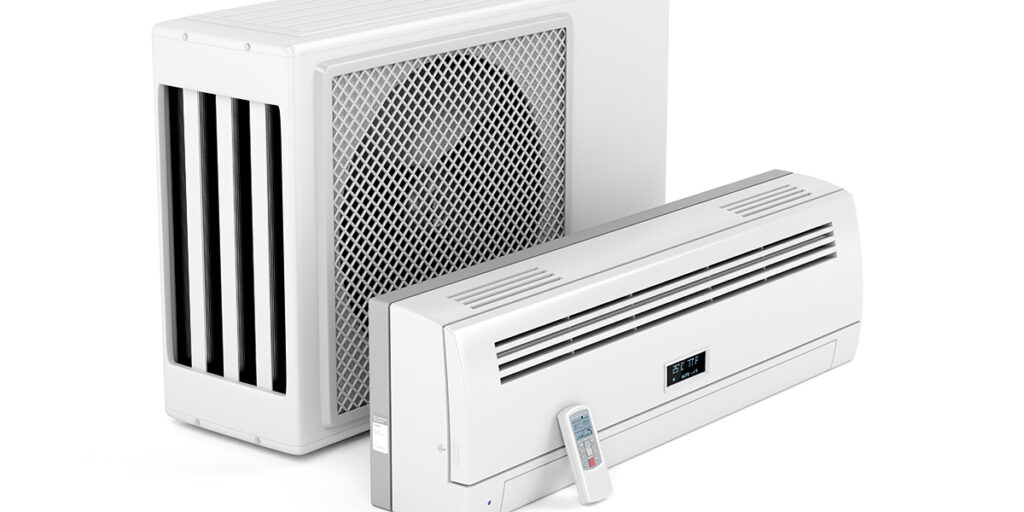Are you unsure how to select the most efficient HVAC system? Let Topline Heating & Air make the selection for you by calling (717) 628-6825.
It can get overwhelming when it’s time to shop for a new heating and cooling system. How do you know the option you select will provide enough cooling power without skyrocketing your energy bills? HVAC system ratings are your key to determining efficiency.
SEER ratings are critical in selecting the ideal HVAC system. The HVAC experts in Douglassville from Topline Heating & Air have all you need to know about HVAC system ratings. Read on to learn how the professionals calculate them, how to select an HVAC unit by its SEER rating, and more.
What Is an HVAC SEER Rating?
The Seasonal Energy Efficiency Ratio (SEER) rating describes an HVAC system’s efficiency level. The more energy-efficient your HVAC system is, the less you’ll spend on energy costs while getting adequate heating and cooling power.
Manufacturers calculate SEER ratings based on energy usage and HVAC operation costs over an entire year. The lower the electricity usage despite heating and cooling time, the better its performance.
Calculating the SEER Rating
To calculate HVAC system ratings, you must first find the cooling output factor. Then, you’ll calculate the cooling output over a certain period. Finally, you’ll divide that number by the system’s electrical usage.
The HVAC industry measures the total cooling output factor by determining how much energy an HVAC unit uses to maintain a specific indoor temperature in various outdoor temperatures. To find the SEER rating, you’ll need to:
- Know how many BTUs your unit uses per hour
- Multiply that by the average number of cooling hours each day and cooling days in a single year
- Divide this number by the number of watt-hours per year
Ideal SEER Rating Requirements for HVAC Systems
How do HVAC system ratings work? The higher the SEER rating, the more efficient the unit is. Because of environmental restrictions, most units with a SEER rating lower than 13 are no longer available.
Instead, you’ll find a large selection of central air conditioners and more with SEER ratings up to 21 or higher. Homeowners have a good SEER rating if the number is higher than 14. The lowest-efficiency options may surpass a SEER rating of 10.
The United States Department of Energy has a minimum requirement for SEER ratings and splits the country into three areas with similar temperature and weather concerns. These three regions are the Southwest, Southeast, and North. The Southwestern and Southeastern US states must have a minimum of 14 SEER, while Northern residents require a 13 SEER rating.
Southwestern states include California and New Mexico, while Southeast region states include those from Texas to Delaware. The Northern region applies to the rest of the states.
How HVAC System Ratings Impact Longevity and More
HVAC system ratings will affect your system’s overall longevity and actual running capacity. These ratings:
- Determine the unit’s efficiency capabilities, not performance guarantees: While the SEER rating is a good indicator of the unit’s power and efficiency over time, it won’t always run with full efficiency. Other factors like outside temperatures, what you set your thermostat to, and whether you have properly sealed your ductwork ultimately contribute to its longevity and effectiveness.
- Don’t guarantee you’ll get your money back in performance: It’s not always the best option to get a heating or cooling system with the highest SEER rating. The more efficient a unit is, the more expensive it is, but if it’s not constantly running at full efficiency, you might not get your money back from performance over time.
- Help you select an ideal HVAC system for your area’s climate: Because there are minimum SEER rating requirements depending on your location, you can’t get an HVAC system with a rating lower than the minimum for your region. A system suitable for normal weather conditions will last longer.
Selecting an HVAC Unit by SEER Rating and More
Since HVAC system ratings don’t solely indicate your unit’s efficiency or future performance, it’s not always wise to base your decision on this number alone. In addition to choosing your HVAC unit by its SEER rating, it’s helpful to consider other aspects, such as:
- Your maximum budget: Knowing how much you can allot toward a new HVAC system will help you pick the most efficient option at a comfortable price. The most expensive option isn’t always the best.
- Future costs: Any HVAC system is a significant investment. Consider how you’ll go forward with repairs, maintenance, and other issues if they arise. It may be wise to select an option that requires fewer repairs, like a heat pump.
- The unit’s average lifespan: Most HVAC systems become inefficient after around 20 years. You’ll likely want the longest-lasting option that provides the best heating and cooling power.
- Your home’s size: Without a properly sized HVAC system, you’ll have higher energy costs and need more frequent repairs. Getting a unit that matches your home’s cooling and heating load is essential. An HVAC technician can help calculate this number and determine the proper unit for your home.
- The manufacturer or installation company’s product warranty: Some HVAC companies have extensive warranties with product performance guarantees. It’s beneficial to work with a company offering such protections as you can save money later if problems arise.
Get the Most Efficient HVAC System From Topline Heating & Air
An efficient HVAC system is vital for saving money and maintaining a comfortable home. If you need assistance understanding or calculating HVAC system ratings, the Topline Heating & Air team can help. As your leading HVAC company serving Honey Brook and Lancaster, PA, and the surrounding areas, we have significant experience suggesting and installing efficient furnaces, air conditioning units, heat pumps, and more.
Don’t keep an inefficient HVAC system! Find out more about our furnace installation services and schedule a consultation with the Topline Heating & Air team in Honey Brook, PA. Call (717) 628-6825 today.



